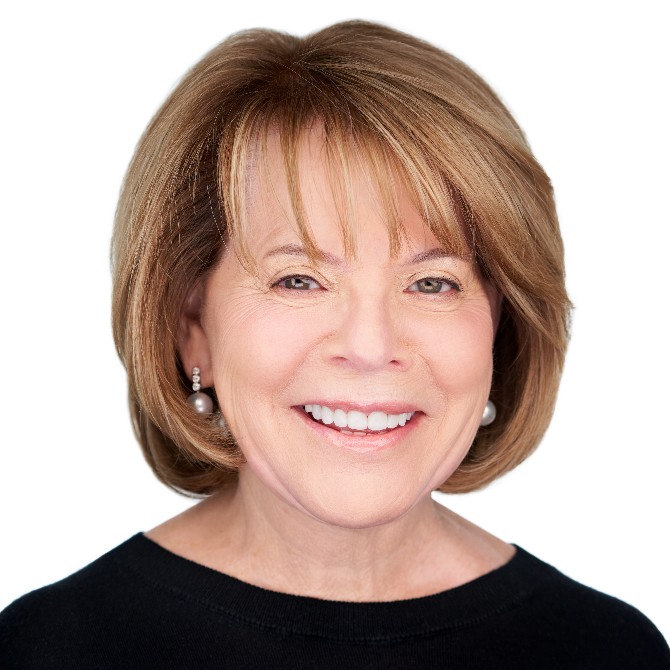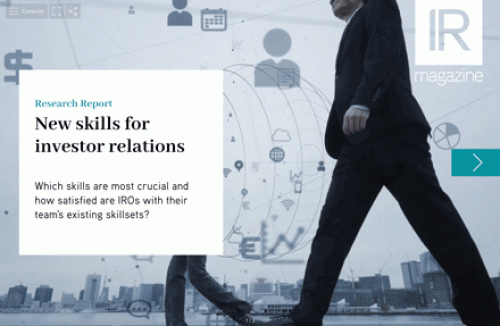As one half of Morgen-Walke Associates, Lynn Morgen created what was the largest independent IR firm in the US when it sold to private equity in 2000. In the run-up to the IR Magazine Forum – Women in IR on April 27, she tells us about the appeal of consultancy life and why keeping up with the profession is a challenge she loves.
‘After I sold the company, I [was subject to] a non-compete for five years so I went to work for my largest client: I was in-house for almost five years but that’s my only experience in-house,’ she says.
A career consultant at heart, Morgen says the appeal of consultancy IR over in-house is that ‘you get exposure to a lot of different management teams and industries and different members of the investment community.’
Direct line to the CEO
She adds that when she made that move in-house, she lost her direct line to top management. ‘It was a high-level position – I was a group vice president and I reported to the CFO – but that direct line of communication to the CEO was not there anymore,’ she recalls. ‘I could certainly speak to him, but there were channels to go through. I did see a difference.’

So how did Morgen get into IR in the first place? ‘Not in the most exciting way,’ she says. While working in institutional sales and broking on Wall Street, a client invited Morgen to attend a site visit for Beech Aircraft. And that’s where she discovered investor relations.
‘It married finance and communications,’ she recalls. ‘I felt like I had some skills in both areas.’ More than simply a skills match, however, what Morgen found was a profession for life. ‘I love investor relations,’ she says. ‘It’s very complex – much more so than most people realize. And of course, each company is different.’
Growing with the profession
We hear much about the ‘professionalization’ of investor relations and Morgen talks about how the role has changed over the years since she embarked on her IR career in 1980.
‘When I started in investor relations, it was only the very largest companies that had really sophisticated IR activities and teams,’ she recounts. ‘For most companies, it was an administrative position, not one that required you to learn the company backwards and forwards and be able to speak directly, and with influence, to the investment community.’
Today, she says, ‘internal IR people are far more knowledgeable and influential than they were when I started in this business’ but what it really comes down to is senior management. The CEO of a company has to believe investor relations is meaningful, she says. Senior management has to see IR as an opportunity to create value for the company.

One of the things Morgen says she enjoys so much about the consultancy side of investor relations is the challenge of not just growing with your clients but also anticipating what’s coming down the IR road.
‘I’m most proud of the fact that we’ve grown with a lot of our clients,’ she says. ‘We might have started with them when they were small-cap companies, but now they’re mid-cap firms. And it’s a challenge to keep up, to make sure you stay at least in step with your clients – and hopefully a step ahead – in terms of what they need to be doing next. And I like that challenge.’
The tenets of good IR
Despite Morgen talking about the importance of CEO support for the IR cause, she also notes how diversity of experience and being accessible – internally but also within the investment community – can help get management on side.
‘We, as IR professionals, need to understand that we’re not just telling the company’s story – we’re also making friends in the investment community by being accessible and responsive,’ she explains.
Women were working for men
This diversity of experience and the benefits it brings to IROs in many ways comes back to questions around equality in IR and whether or not women make it to those senior positions. ‘When I first started it was definitely men in the senior roles,’ Morgen recalls. ‘And the women were working for them.’
While IR Magazine data shows it is still the case that more men than women hold senior positions in IR, Morgen says things have definitely changed: ‘Across the corporate world, women have definitely risen to more senior positions.’

It’s not all about the top spot, of course. Morgen talks of the trade-offs that women – though certainly not just women – make in their careers. ‘If you’re going to stay with a company for a period of time, by definition, you’re probably not going to be in the top position,’ she argues. ‘But that may be a good trade-off for people who like their job, like the company and the company culture.’
If women do want those top jobs, however, Morgen believes they need to be willing to move around a little bit more than they have in the past. ‘When a company is looking to fill a senior position and you’re offering a breadth of experience, you can parlay that into increased compensation and recognition within that new company,’ she says.
Our seventh annual IR Magazine Forum – Women in IR returns to New York on April 27 – click for more details and to book your place










